
Ouani: The Hidden Gem of the Indian Ocean
Nestled on the island of Anjouan, Ouani is a small but enchanting town in the Comoros archipelago. With its stunning landscapes, lush greenery, and pristine beaches, Ouani offers a tranquil escape that feels like stepping into a serene paradise. The town is known for its friendly locals and a rich culture that blends African, Arab, and French influences. Visitors to Ouani will find a plethora of natural beauty to explore. The town is surrounded by verdant hills and boasts some of the most picturesque coastlines in the Comoros. The crystal-clear waters are perfect for snorkeling and diving, offering a glimpse into the vibrant underwater world teeming with marine life. The beaches are often quiet and secluded, making them ideal for relaxation and unwinding. In addition to its natural wonders, Ouani offers a glimpse into the traditional Comorian way of life. Stroll through the town's narrow streets and discover charming local markets, where you can buy fresh produce, spices, and handmade crafts. The local cuisine is a delightful blend of flavors, with fresh seafood being a standout. Make sure to try some local dishes like 'langouste' (lobster) and 'mkatra' (coconut bread). Ouani is also a gateway to exploring the rest of Anjouan island. Take a hike to the island's interior to discover lush rainforests, cascading waterfalls, and historical sites. The island's volcanic origins have left behind dramatic landscapes that are perfect for adventure seekers and nature lovers alike. Whether you're looking to relax on the beach, immerse yourself in local culture, or embark on an island adventure, Ouani has something to offer every traveler.
Local tips in Ouani
- Visit the beaches early in the morning for the most peaceful experience and stunning sunrises.
- Bring snorkeling gear to fully enjoy the clear waters and vibrant marine life.
- Try local markets for fresh produce and handmade crafts, perfect for souvenirs.
- Learn a few basic words in French or the local language, Shikomori, to better connect with the friendly locals.
- Respect local customs and dress modestly, especially when visiting villages and markets.
- Hire a local guide for hiking trips to ensure you don’t miss any hidden gems in the island's interior.
Ouani: The Hidden Gem of the Indian Ocean
Nestled on the island of Anjouan, Ouani is a small but enchanting town in the Comoros archipelago. With its stunning landscapes, lush greenery, and pristine beaches, Ouani offers a tranquil escape that feels like stepping into a serene paradise. The town is known for its friendly locals and a rich culture that blends African, Arab, and French influences. Visitors to Ouani will find a plethora of natural beauty to explore. The town is surrounded by verdant hills and boasts some of the most picturesque coastlines in the Comoros. The crystal-clear waters are perfect for snorkeling and diving, offering a glimpse into the vibrant underwater world teeming with marine life. The beaches are often quiet and secluded, making them ideal for relaxation and unwinding. In addition to its natural wonders, Ouani offers a glimpse into the traditional Comorian way of life. Stroll through the town's narrow streets and discover charming local markets, where you can buy fresh produce, spices, and handmade crafts. The local cuisine is a delightful blend of flavors, with fresh seafood being a standout. Make sure to try some local dishes like 'langouste' (lobster) and 'mkatra' (coconut bread). Ouani is also a gateway to exploring the rest of Anjouan island. Take a hike to the island's interior to discover lush rainforests, cascading waterfalls, and historical sites. The island's volcanic origins have left behind dramatic landscapes that are perfect for adventure seekers and nature lovers alike. Whether you're looking to relax on the beach, immerse yourself in local culture, or embark on an island adventure, Ouani has something to offer every traveler.
When is the best time to go to Ouani?
Iconic landmarks you can’t miss
Ngazidja
Explore the beauty of Ngazidja, the largest island in the Comoros, where lush landscapes meet vibrant culture and stunning coastlines.
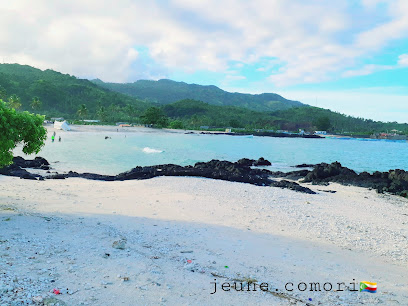
Moheli Laka Lodge
Discover the serene beauty and rich culture of Moheli at Moheli Laka Lodge, your perfect getaway in the Comoros archipelago.

Nzwani
Discover the enchanting beauty and rich culture of Nzwani, a hidden gem in the Comoros archipelago, perfect for tranquil adventures and cultural experiences.
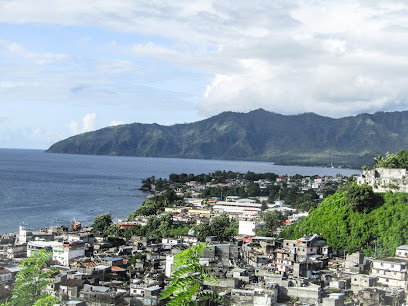
Bouni Beach
Discover the beauty of Bouni Beach, a pristine paradise in Comoros where sun, sand, and culture come together for an unforgettable escape.
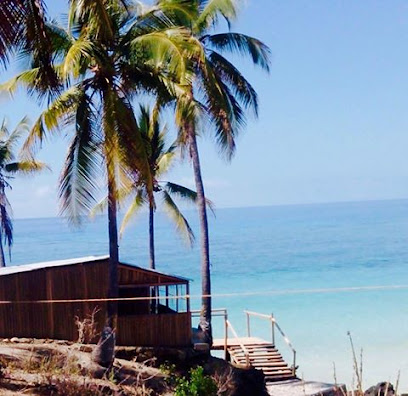
Dos du Dragon
Explore the natural beauty and cultural richness of Dos du Dragon, a captivating tourist attraction in Mitsamiouli, Comoros, perfect for nature lovers and cultural explorers.
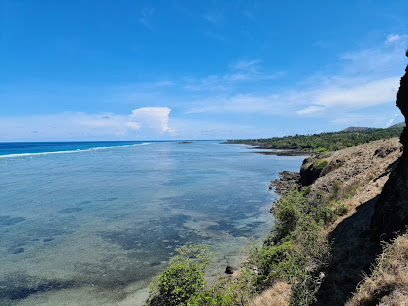
Grande Mosquée de Moroni مسجد
Discover the Grande Mosquée de Moroni, an architectural masterpiece and cultural landmark in the heart of Comoros, steeped in history and beauty.
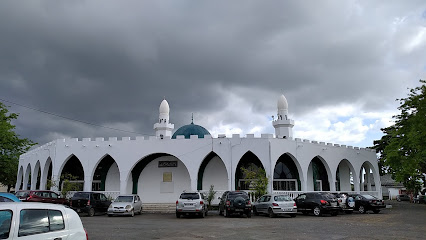
Adore Comores
Explore the enchanting beauty of the Comoros Islands with Adore Comores, your premier tour operator for unforgettable experiences.
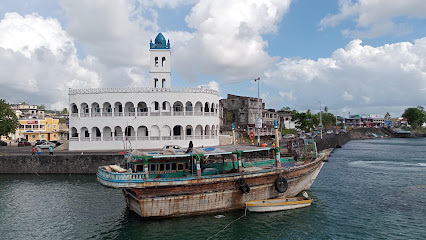
Plage de Moya
Experience the tranquil beauty of Plage de Moya, a hidden paradise in Comoros perfect for relaxation, adventure, and cultural immersion.
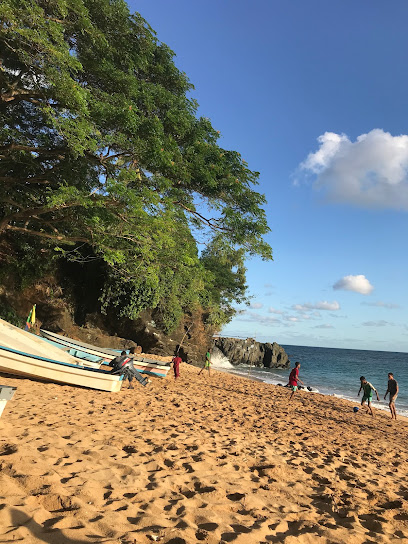
Mosquée Mssihiri wa Cheik Ahmed
Explore the architectural splendor and cultural significance of Mosquée Mssihiri wa Cheik Ahmed in the heart of Moroni, Comoros.
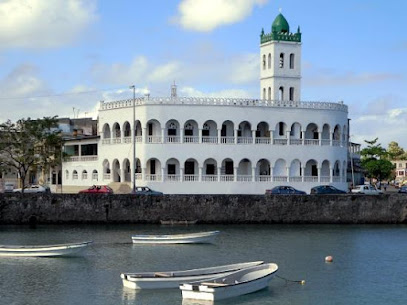
Mosquée d'Ourovéni
Explore the Mosquée d'Ourovéni, a cultural gem in Comoros, where stunning architecture meets rich spiritual heritage, creating a serene atmosphere for all visitors.
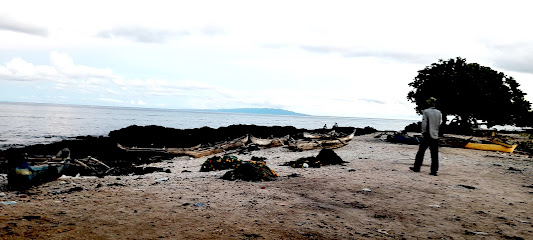
Hôtel Le Refuge Kpark
Discover serenity and wellness at Hôtel Le Refuge Kpark, your peaceful retreat nestled in the lush landscapes of Barakani, Comoros.
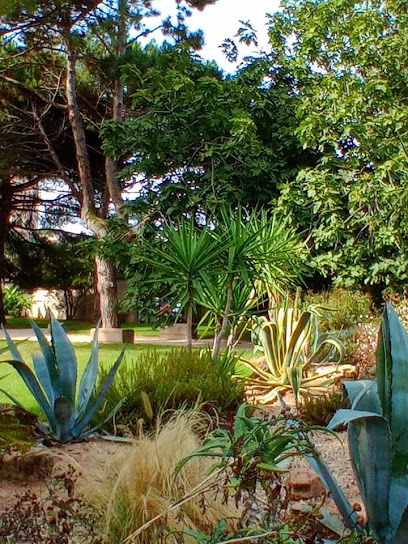
Dziani Boundouni
Discover the serene beauty of Dziani Boundouni, a stunning lake in Comoros, perfect for relaxation, adventure, and nature exploration.
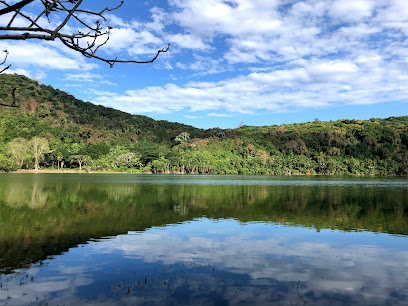
Villa Saifoudine
Experience the beauty of Moroni at Villa Saifoudine, a serene lodging that combines comfort with the charm of Comorian hospitality.

Comores Anjouan Ouzini
Explore the Ouzini Mosque in Anjouan, a serene cultural gem of the Comoros, showcasing stunning architecture and local traditions.

Youssouf Madi Masjid
Explore the serene Youssouf Madi Masjid in Fomboni, Comoros, where architectural beauty meets cultural heritage in a tranquil setting.
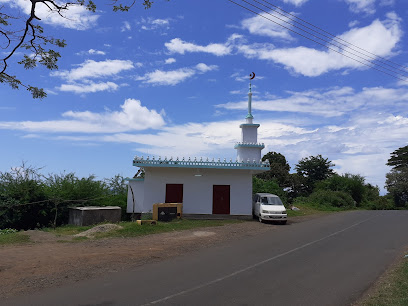
Unmissable attractions to see
Bouni Beach
Discover Bouni Beach: Comoros' serene paradise with white sands, turquoise waters, and vibrant local culture, perfect for relaxation and adventure.
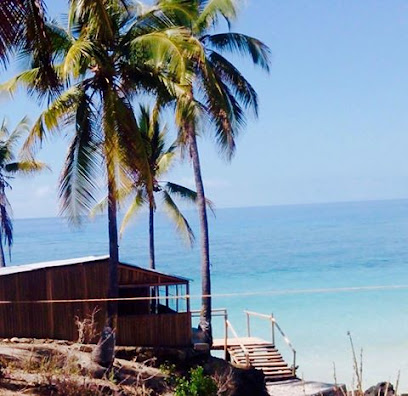
Dos du Dragon
Discover the mythical Dos du Dragon in Mitsamiouli, Comoros: a unique volcanic rock formation offering stunning views and cultural immersion.
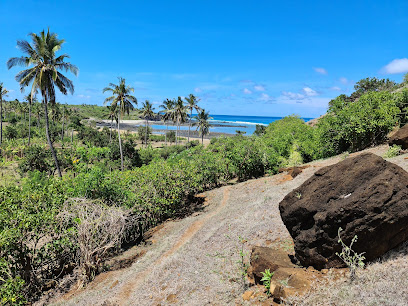
M'roni Public Garden
Escape to tranquility at M'roni Public Garden in Mutsamudu, a serene green space offering a refreshing retreat in the heart of the city.
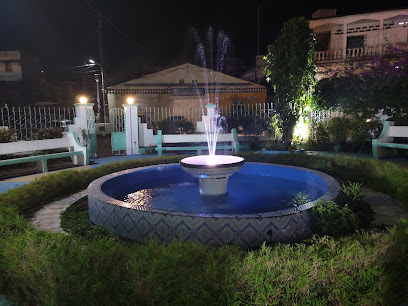
Essential places to dine
Baba King
Discover Baba King in Mamoudzou - where delectable burgers meet local charm in Mayotte's culinary scene.
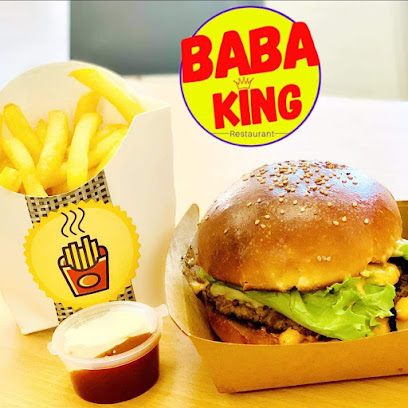
Hôtel Al Amal
Experience tranquility at Hôtel Al Amal in Mutsamudu - your perfect resort getaway in stunning Comoros.

Johanna Livingstone Hotel
Discover comfort and local charm at Johanna Livingstone Hotel in Mutsamudu, your gateway to exploring the enchanting beauty of Comoros.
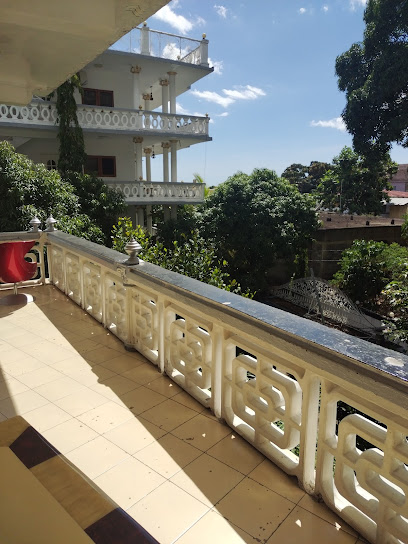
Hôtel Le Papillon (île d'Anjouan)
Experience comfort and local charm at Hôtel Le Papillon on Île d'Anjouan – your gateway to paradise in Comoros.

Hotel des Iles
Discover the serene comfort and authentic charm at Hotel des Iles in Mutsamudu, Comoros - your perfect getaway destination.
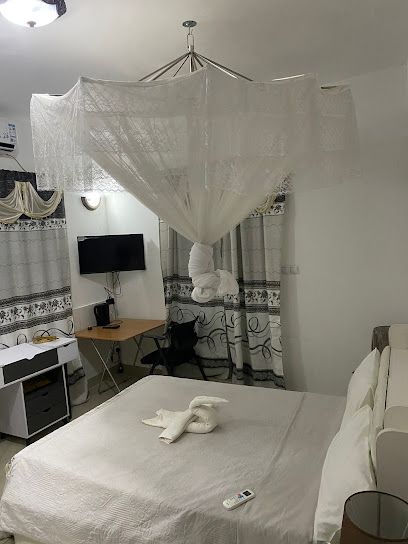
Naoumi Pizza
Experience the authentic flavors of Comoros at Naoumi Pizza in Mutsamudu - where delicious pizzas meet warm hospitality.
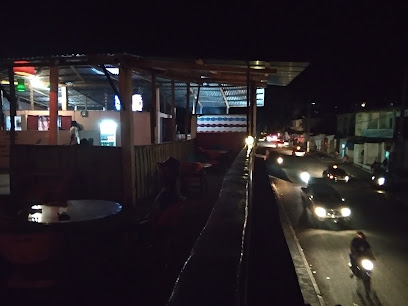
chez aladin
Discover authentic Comorian cuisine at Chez Aladin in Mirontsi – where every dish tells a story.
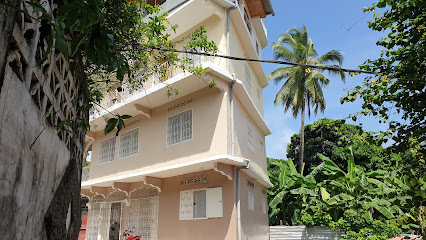
Hôtel le Moya Plage
Discover peace and charm at Hôtel le Moya Plage - your gateway to the enchanting beauty of Comoros Islands.
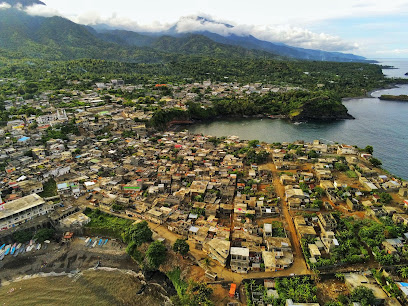
Le Jasmin
Discover tranquility at Le Jasmin Hotel in Pajé, Comoros – your peaceful retreat surrounded by natural beauty.
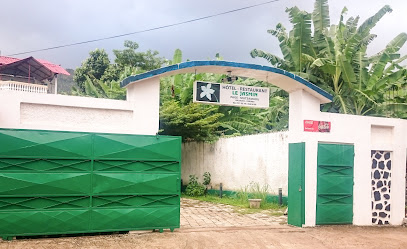
Comptoir des Iles-Al Quitoir
Experience exquisite dining at Comptoir des Iles-Al Quitoir in Mutsamudu, where fresh ingredients meet Comorian culinary traditions.
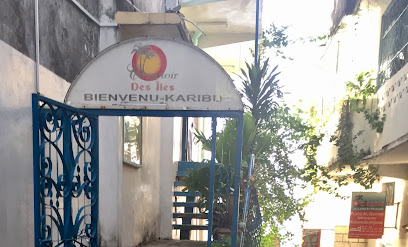
Le Florida Hotel Restaurant
Experience authentic Comorian cuisine at Le Florida Hotel Restaurant, where every dish tells a story amidst stunning island views.
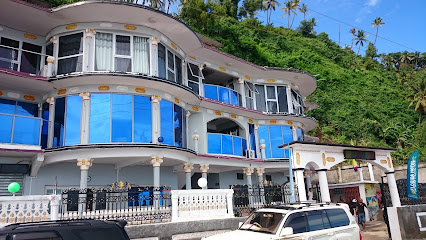
Al Djadid
Experience tranquility and cultural richness at Al Djadid Hotel in beautiful Anjouan, Comoros - your gateway to paradise.

Karama Hôtel
Discover tranquility at Karama Hôtel, a charming resort hotel in Mutsamudu, Comoros, offering stunning views and comfortable accommodations.
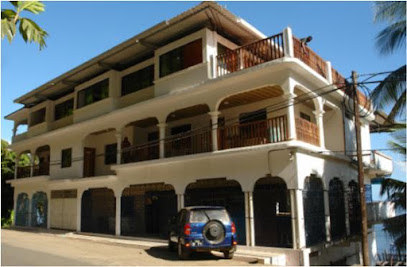
Océanis Hotel
Experience comfort and local charm at Océanis Hotel in Mutsamudu - your perfect base for exploring the stunning Comoros Islands.
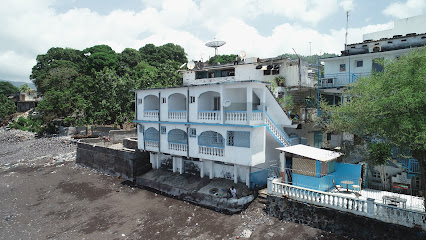
Al Quittoir
Experience the enchanting flavors of France at Al Quittoir in Mutsamudu, where local ingredients meet traditional cuisine.
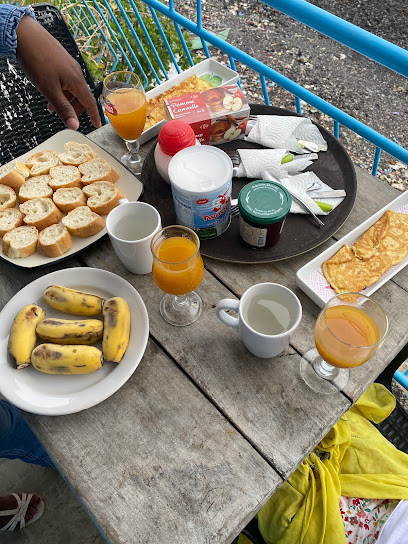
Markets, malls and hidden boutiques
Wiz fashion
Discover unique clothing styles at Wiz Fashion in Ouani, Comoros - where local culture meets contemporary fashion.

Ma boutique en ligne
Explore the vibrant electric generator hub of Mutsamudu, Comoros, and experience local commerce at Ma Boutique en Ligne.
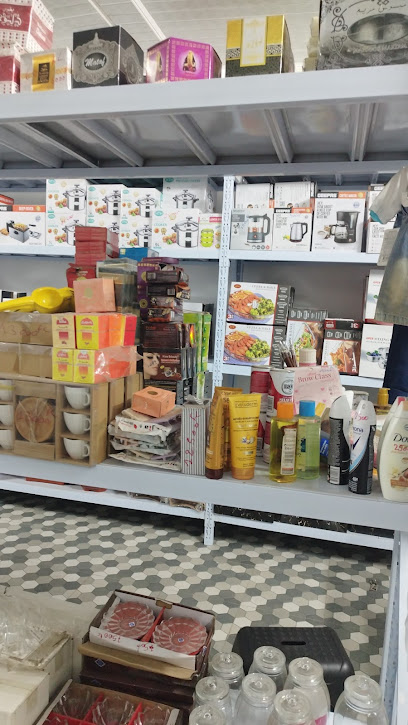
Magasin AminaHoumadi
Experience local culture and unique shopping at Magasin AminaHoumadi in Mutsamudu, Comoros, where authentic treasures await!
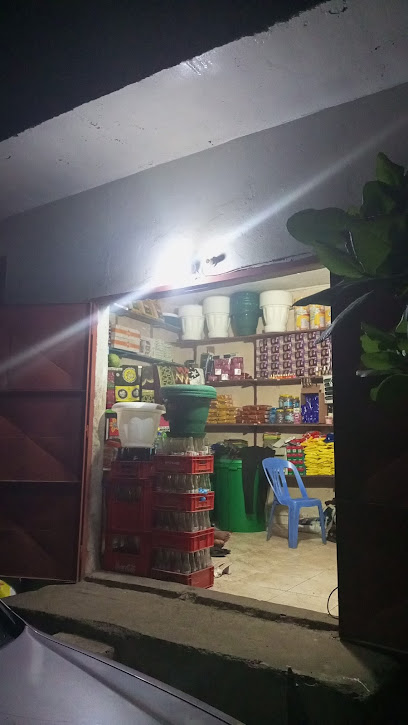
Momoni
Explore local flavors and vibrant culture at Momoni, a grocery store in Mirontsi, Comoros, offering fresh produce and unique culinary delights.

Sandwicherie Aalliyah
Experience the vibrant flavors of Comoros at Sandwicherie Aalliyah, a charming grocery store in Ouani offering fresh sandwiches and local delicacies.

Inti Shop
Discover local flavors and essentials at Inti Shop, your go-to grocery store in Ouani, Comoros.
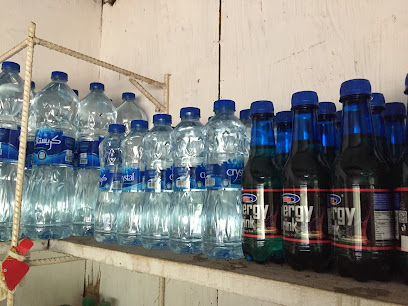
Ali heleya shopping
Discover unique jewelry treasures at Ali Heleya Shopping in Jimilime, Comoros, where tradition meets craftsmanship in stunning designs.
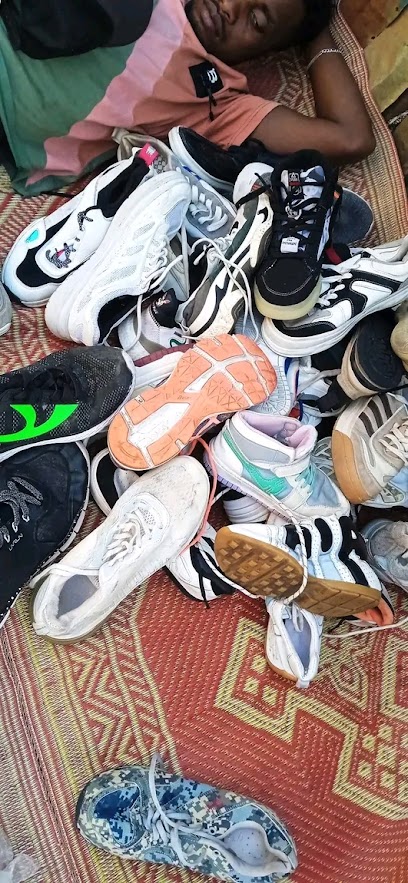
Magazines Konaté
Explore vibrant fashion and local textiles at Magazines Konaté in Ouani, Comoros, a must-visit clothing store for every tourist.
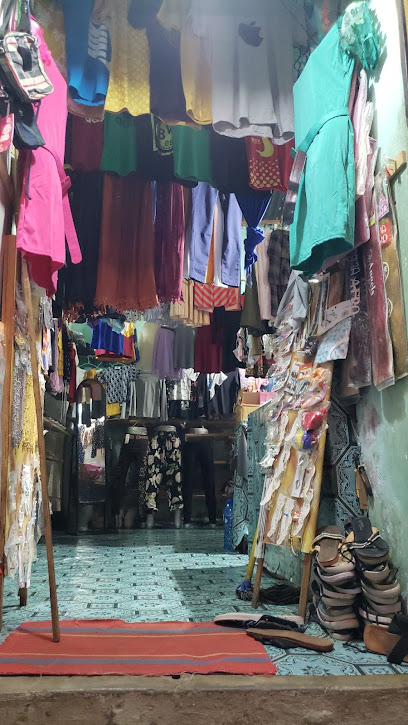
PHARMACIE DE OUANI (Ouani pharma)
Experience health and wellness at Pharmacie de Ouani, your trusted pharmacy in the heart of Comoros, providing essential health products and local remedies.
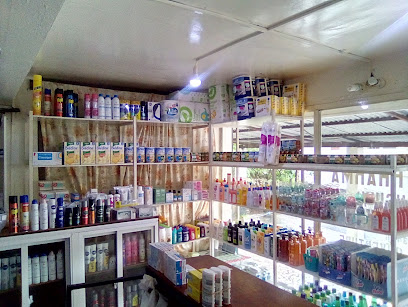
STM-Boutique
Explore STM-Boutique in Mutsamudu for a unique selection of health, beauty, and natural products that reflect the culture of Comoros.

Aoussi Ridhoine Ahmed
Explore Aoussi Ridhoine Ahmed in Ouani for an authentic taste of Comorian culture through unique crafts and local treasures.

3 s studio
Experience the vibrant flavors of Comoros at 3 S Studio, your go-to grocery store in Ouani for fresh local products and unique culinary treasures.

Pannaux SAKnet
Explore the vibrant Pannaux SAKnet in Ouani, Comoros, where shopping meets culture in a lively atmosphere filled with local crafts and cuisine.

Magasin Ali Ousseni
Explore Mutsamudu's premier hardware store, Magasin Ali Ousseni, offering quality tools and supplies for all your DIY needs.

Blue Corner Shop
Explore the vibrant Blue Corner Shop in Mutsamudu for unique clothing that reflects the rich culture of Comoros, perfect for tourists and locals alike.

Essential bars & hidden hideouts
Hôtel Le Refuge Kpark
Experience tranquility at Hôtel Le Refuge Kpark, a premier wellness hotel in Barakani, Comoros, featuring serene surroundings and relaxing amenities.
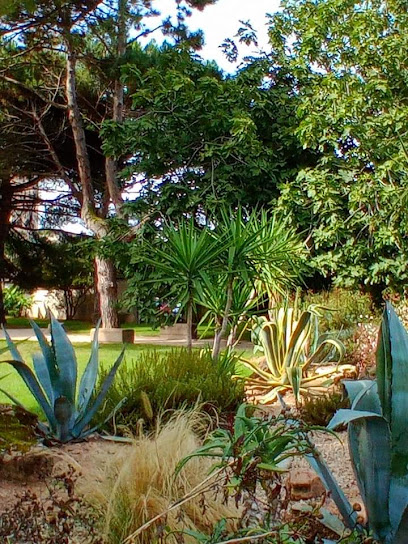
Arc-en-ciel
Discover the lively atmosphere of Arc-en-ciel in Ouani, a bar that embodies the spirit of the Comoros with delightful drinks and vibrant social interactions.

Les touristes
Experience the vibrant nightlife at Les Touristes, a lively bar in Ouani, Comoros, perfect for sipping local drinks and mingling with friends.

Nachir Djamou-Houcoume
Immerse yourself in the vibrant culture of Comoros at Nachir Djamou-Houcoume, the ultimate hookah bar experience in Mutsamudu.
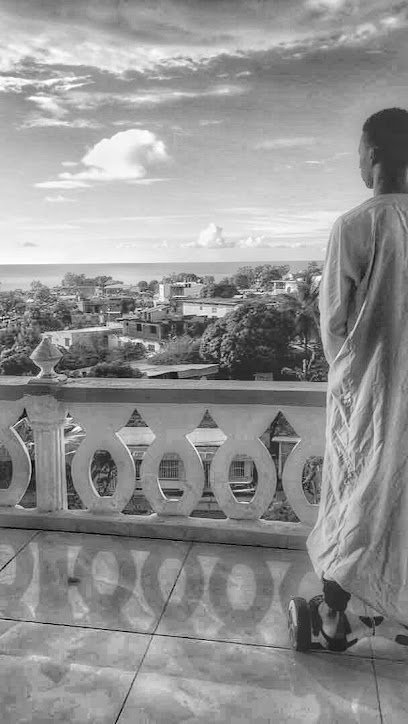
Restaurant Benzalissa
Discover the lively ambiance and unique drinks at Restaurant Benzalissa in Mbambao Mtsanga, a perfect spot for relaxation and local culture.
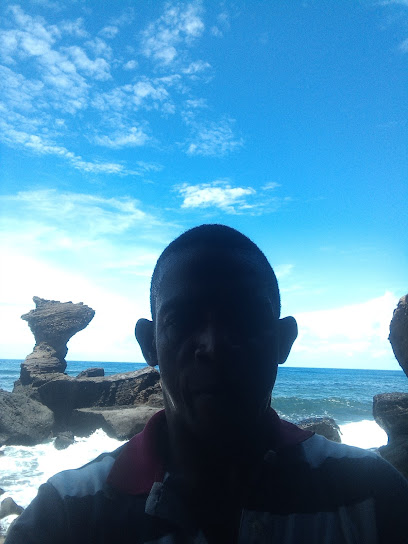
CANAL+ OUANI
Discover the charm of cinema at Canal+ Ouani, where local culture meets the magic of film in the heart of Comoros.
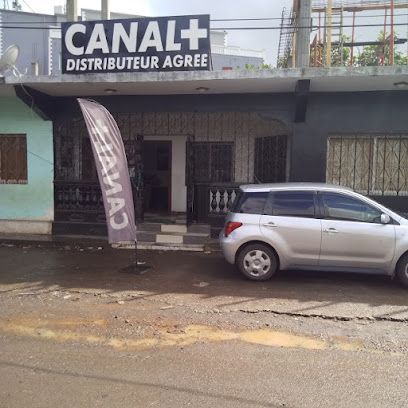
Ahmed Mouslim
Discover the vibrant nightlife at Ahmed Mouslim, a lively bar in Dindri, Comoros, where local culture and delicious drinks come together.

Restaurant Benzahalissa
Discover the lively ambiance and authentic flavors at Restaurant Benzahalissa in Bambao, the perfect spot for tourists to unwind in Comoros.

Local Phrases
-
- HelloSalam
[sah-lam] - GoodbyeKwaheri
[kwa-heh-ree] - YesEwe
[eh-weh] - NoHapana
[hah-pah-nah] - Please/You're welcomeTafadhali
[ta-fah-tha-lee] - Thank youAsante
[ah-sahn-teh] - Excuse me/SorrySamahani
[sah-mah-hah-nee] - How are you?U hali gani?
[oo hah-lee gah-nee?] - Fine. And you?Nzuri. Na wewe?
[n-zoo-ree. nah weh-weh?] - Do you speak English?Unasema Kiingereza?
[oo-nah-seh-mah kee-in-geh-reh-zah?] - I don't understandSielewi
[see-eh-leh-wee]
- HelloSalam
-
- I'd like to see the menu, pleaseNingependa kuona menyu, tafadhali
[ning-eh-pen-dah koo-oh-nah men-yoo, tah-fah-tha-lee] - I don't eat meatSi kula nyama
[see koo-lah nyah-mah] - Cheers!Mambo!
[mahm-boh] - I would like to pay, pleaseNingependa kulipa, tafadhali
[ning-eh-pen-dah koo-lee-pah, tah-fah-tha-lee]
- I'd like to see the menu, pleaseNingependa kuona menyu, tafadhali
-
- Help!Msaada!
[msah-ah-dah] - Go away!Nenda zako!
[nen-dah zah-koh] - Call the Police!Piga simu polisi!
[pee-gah see-moo poh-lee-see] - Call a doctor!Piga simu daktari!
[pee-gah see-moo dahk-tah-ree] - I'm lostNimepotea
[nee-meh-poh-teh-ah] - I'm illNinaumwa
[nee-nah-oom-wah]
- Help!Msaada!
-
- I'd like to buy...Ningependa kununua...
[ning-eh-pen-dah koo-noo-noo-ah] - I'm just lookingNatazama tu
[nah-tah-zah-mah too] - How much is it?Ni bei gani?
[nee bay gah-nee?] - That's too expensiveHiyo ni ghali sana
[hee-yoh nee gah-lee sah-nah] - Can you lower the price?Unaweza kupunguza bei?
[oo-nah-weh-zah koo-poon-goo-zah bay?]
- I'd like to buy...Ningependa kununua...
-
- What time is it?Saa ngapi?
[sah-ah ngah-pee?] - It's one o'clockNi saa moja
[nee sah-ah moh-jah] - Half past (10)Nusu ya kumi
[noo-soo yah koo-mee] - MorningAsubuhi
[ah-sooh-boo-hee] - AfternoonMchana
[m-chah-nah] - EveningJioni
[joh-nee] - YesterdayJana
[jah-nah] - TodayLeo
[leh-oh] - TomorrowKesho
[keh-shoh] - 1Moja
[moh-jah] - 2Mbili
[m-bee-lee] - 3Tatu
[tah-too] - 4Nne
[n-neh] - 5Tano
[tah-noh] - 6Sita
[see-tah] - 7Saba
[sah-bah] - 8Nane
[nah-neh] - 9Tisa
[tee-sah] - 10Kumi
[koo-mee]
- What time is it?Saa ngapi?
-
- Where's a/the...?Iko wapi...?
[ee-koh wah-pee] - What's the address?Anwani ni gani?
[ah-nwah-nee nee gah-nee] - Can you show me (on the map)?Unaweza kunionyesha (kwenye ramani)?
[oo-nah-weh-zah koo-nee-oh-nyeh-shah kweh-neh rah-mah-nee] - When's the next (bus)?Basi lijalo ni saa ngapi?
[bah-see lee-jah-loh nee sah-ah ngah-pee] - A ticket (to ....)Tiketi (kwenda ...)
[tee-keh-tee kwen-dah]
- Where's a/the...?Iko wapi...?
History of Ouani
-
Ouani, located on the island of Anjouan in the Comoros, has a rich history that dates back to early African settlers. These early inhabitants were part of the Swahili culture, which influenced the architectural styles, social structures, and customs in Ouani. The town was a hub for local trade and had a vibrant community life centered around its natural harbor and fertile lands.
-
In the 10th century, Arab traders began to frequent the Comoros, including Ouani. They introduced Islam, which slowly became the dominant religion in the region. The blending of Arab and indigenous cultures can be seen in the town's architecture, language, and religious practices. Mosques became central to community life, and Islamic traditions were woven into the local customs.
-
During the Age of Exploration in the 16th century, Portuguese explorers arrived in the Comoros, including Ouani. They were followed by other European powers, such as the French and the British. While the Portuguese did not establish permanent settlements, their presence marked the beginning of European interest in the region. This period saw an increase in maritime activity and the introduction of new goods and ideas.
-
Ouani, like the rest of the Comoros, came under French colonial rule in the 19th century. The French influence brought significant changes to the town's infrastructure, economy, and social hierarchy. French became the language of administration and education, and the local economy was oriented towards the production of cash crops such as vanilla and cloves. The colonial period also saw the construction of new buildings and the introduction of European architectural styles.
-
The mid-20th century was a time of political awakening and struggle for independence in Ouani and the broader Comoros. Nationalist movements gained momentum, advocating for self-determination and an end to colonial rule. In 1975, the Comoros gained independence from France, and Ouani became part of the newly formed nation. This period was marked by political turmoil and efforts to establish a stable government.
-
Today, Ouani is a vibrant town that reflects its rich historical tapestry. The cultural heritage of the town is evident in its traditional music, dance, and festivals. The local economy is supported by agriculture, fishing, and increasingly, tourism. Visitors to Ouani can explore its historical sites, enjoy its natural beauty, and experience the warm hospitality of its residents.
Ouani Essentials
-
Ouani is located on the island of Anjouan in the Comoros archipelago. The main gateway to Comoros is Prince Said Ibrahim International Airport (HAH) on the island of Grande Comore. From there, you can take a domestic flight to Ouani Airport (AJN) on Anjouan. Alternatively, there are ferry services available between Grande Comore and Anjouan, though they can be less reliable and subject to weather conditions.
-
Ouani is a small town, and many attractions are within walking distance. For longer trips, local taxis and shared taxis (locally called 'bush taxis') are available. Car rentals are not common, but you can hire a driver. Public transport is limited, so planning your trips in advance is advisable. Motorbikes are another popular mode of transportation among locals.
-
The official currency in Comoros is the Comorian Franc (KMF). Credit cards are not widely accepted, so it is essential to carry cash. ATMs are available but can be unreliable, so it's advisable to withdraw sufficient funds when you find a working machine. U.S. dollars and Euros are sometimes accepted in larger establishments but always confirm beforehand.
-
Ouani is generally a safe destination, but standard safety precautions should be taken. Avoid walking alone at night and be cautious in less populated areas. Petty crimes like pickpocketing can occur, especially in crowded places. There are no specific high-crime areas targeting tourists, but staying vigilant is always recommended.
-
In case of emergency, dial 17 for police assistance and 18 for medical emergencies. The local hospital in Ouani can handle basic medical needs, but for more serious issues, you may need to be transferred to the capital, Moroni. It is advisable to have travel insurance that covers medical emergencies and evacuation. Pharmacies are available for minor health issues.
-
Fashion: Do dress modestly, especially when visiting religious sites. Avoid wearing revealing clothing. Religion: Do respect local customs and traditions. Remove your shoes when entering mosques. Public Transport: Do be respectful and offer your seat to older passengers. Don’t eat or drink on public transport. Greetings: Do greet people with a handshake. A smile and a polite greeting in French or Swahili will be appreciated. Eating & Drinking: Do try local dishes and accept food offerings graciously. Don’t refuse hospitality, as it is considered impolite.
-
To experience Ouani like a local, visit the local markets where you can buy fresh produce and traditional Comorian goods. Engage with locals, who are often friendly and willing to share stories about the town's history and culture. Don’t miss visiting the local beaches, which are less crowded and offer a more authentic experience. Try to learn a few phrases in French or Swahili, as it will make interactions smoother and more enjoyable.
Nearby Cities to Ouani
-
Things To Do in Domoni
-
Things To Do in Acoua
-
Things To Do in Chiconi
-
Things To Do in Koungou
-
Things To Do in Sada
-
Things To Do in Mamoudzou
-
Things To Do in Dembeni
-
Things To Do in Chirongui
-
Things To Do in Bandrele
-
Things To Do in Iconi
-
Things To Do in Moroni
-
Things To Do in Nosy Be
-
Things To Do in Majunga
-
Things To Do in Mahajanga
-
Things To Do in Antsiranana





